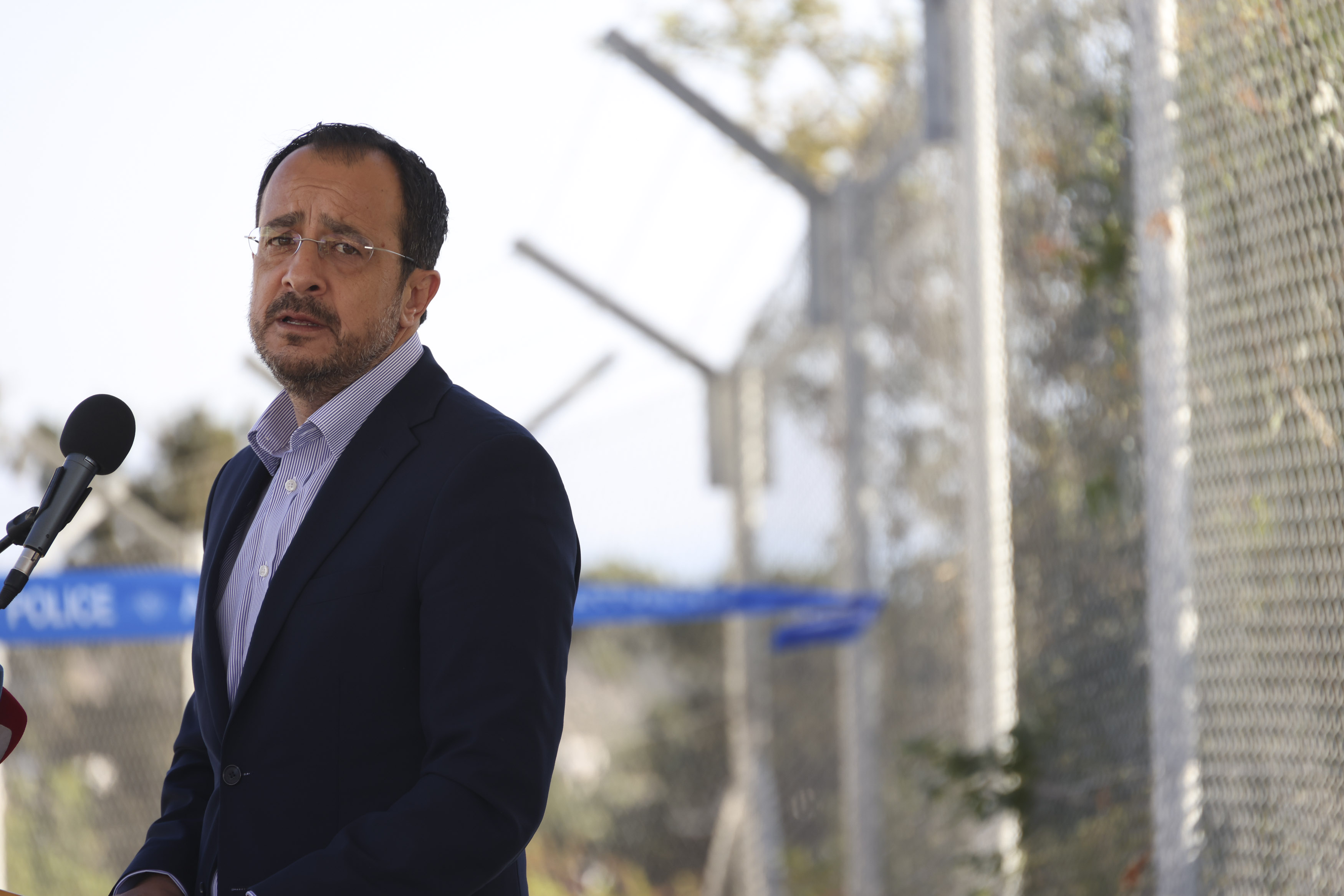The government has “a Plan A and a Plan B” for the liquefied natural gas (LNG) terminal at Vasiliko, the president said on Tuesday.
Nikos Christodoulides was responding to journalists’ questions about the status of the LNG project, plagued by delays amid a financial dispute between the government and the Chinese-led consortium.
The president was asked whether a termination of the contract with the consortium would enable the Cypriot side to demand compensation.
He declined to give a direct answer, pointing out that the dispute is under legal arbitration.
“For us, the [LNG] project has strategic value. We are in talks with the company, and I must admit that there are some issues on which we have a different approach, regarding certain delays which have left us unsatisfied.”
But, Christodoulides added, “we do have a Plan A and a Plan B, depending on how things develop.”
He did not elaborate.
Last month the energy minister said the government may have to resort to additional arrangements with the consortium that are outside the contract.
All options were on the table, the minister said at the time.
It’s understood he was speaking about a separate arrangement with the consortium that might expedite the delivery to Cyprus of the Floating, Storage and Regasification Unit (Fsru), still at the port of Shanghai.
Sources at the time told the Cyprus Mail that it appears the Chinese side is holding the vessel “to ransom” as leverage to get the government to relent on the consortium’s financial demands.
Meanwhile construction works on the land-based facilities at Vasiliko have all but ground to a halt.
The consortium is seeking €200 million in additional compensation through arbitration proceedings in London. This claim comes despite the original contract being awarded for €500 million, with current expenses already exceeding €542 million.
Cyprus signed the contract for the LNG terminal project back in December 2019. The whole project should have taken 22 months to complete.
Switching to natural gas for power generation is seen as crucial for Cyprus, as it would cut carbon dioxide emissions by 30 per cent, potentially saving the island tens of millions of euros in greenhouse gas penalties.







Click here to change your cookie preferences